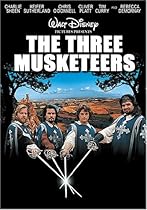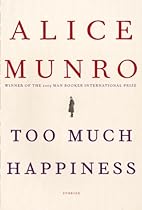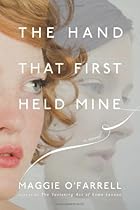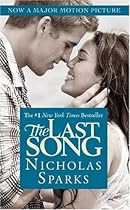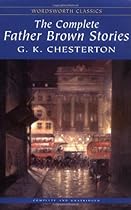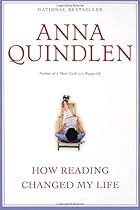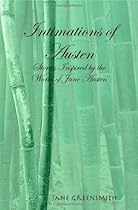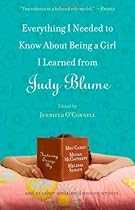I usually prefer to review each book individually, but I'm so, so far behind I decided to do one post with a bunch of mini-reviews to catch up quickly. So, here's an overview of some of the books I've been reading recently. Enjoy!
 The Weed that Strings the Hangman's Bag
The Weed that Strings the Hangman's Bag by Alan Bradley is the sequel to The Sweetness at the Bottom of the Pie. I highly recommend both books. I loved this book for exactly the same reasons I loved
The Sweetness at the Bottom of the Pie, which was one of the best books I read last year.
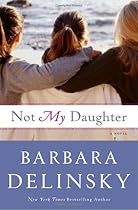 Not My Daughter
Not My Daughter by Barbara Delinsky is about a group of high school girls who make a pact to get pregnant. When that actually happened a few years ago, I was horrified and shocked. I absolutely cannot comprehend that. At all. There are plenty of things I don't agree with or wouldn't do, but can still at least entertain the idea of how someone could do it. Even a lot of horrible things, like killing someone, you can comprehend on some level. But why on earth would a high school student get pregnant on purpose? The only reason I could come up with is to escape a molestation situation, believing that by getting pregnant the abuse would stop. But that's not what happens here. I hoped this book would bring me some perspective, but it didn't. I did enjoy the book for the most part, as you unravel exactly what happened with the pact and seeing how the main character, the mother of one of the girls and the high school principal, handles the situation. However, the way she reacts annoys me most of the time. Now, I'm not a mother, so I can't say with certainty how I would react. But, I'm pretty positive I would beat the crap out of the girl and take away any freedom and joy she had. I know that's what my mother would have done, which is one of the many reasons I would never have gotten pregnant in high school. I would react like Naomi on Private Practice. I loved the story with her daughter getting pregnant because I felt like she reacted like I would react. She just can't handle talking to her, or even seeing her, and she doesn't want to endanger her grandchild but wants to kill her daughter anyway. I felt like the parents in this book were for the most part too understanding, which probably helped lead to the bad behavior.
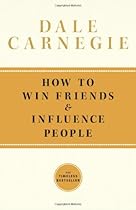
I never expected to read
How to Win Friends and Influence People by Dale Carnegie. I thought it sounded tacky and used car salesman-y. But, we might be doing something with the Dale Carnegie institute with work next year so I thought I should read it. I was surprised to learn it was written in the 30s. It was actually pretty good. It's mainly common sense, but there were still some good lessons about being nice to people, how to listen to people, and how to show people that you value their thoughts.
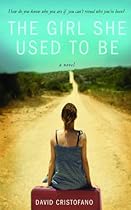 The Girl She Used to Be
The Girl She Used to Be by David Cristofano is about a girl in the witness protection program. Cristofano is a great writer and I identified with the main character, even though I clearly haven't been in her situation. She's basically doomed for a life of mediocrity because she can't draw attention to herself, and she hardly knows who she really is. I felt like there was something more literary to this book than the packaging implies, so it was a nice surprise.
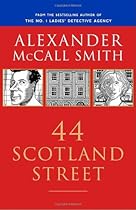
Alexander McCall Smith is one of my new favorite authors.
44 Scotland Street is well written, funny, and insightful. McCall Smith creates wonderful characters, who you love despite their faults. There's just something really real about them. I also found myself laughing out loud several times. This book was very different from the other McCall Smith book I read,
La's Orchestra Saves the World, but I thoroughly enjoyed both of them.
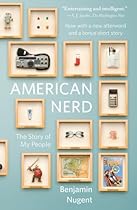 American Nerd
American Nerd by Ben Nugent was not as good as I expected. I thought it would be more about things nerds enjoy, but it was more about why people become nerds, which I still didn't feel like he explained very well. He rambled a lot, and talked in circles. I didn't feel like it was very well written, and I didn't really get anything out of it. I nearly stopped reading at several points, but old habits die hard and I still haven't quite broken myself of not finishing every book I start, although I improving.
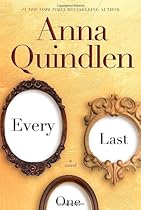
And on to something better. Anna Quidlen is one of my favorite modern writers, and she definitely delivers with
Every Last One. Like McCall Smith, she creates wonderful, real characters. That makes this book all the more heart wrenching. I can't really say much about this book without giving too much away, so I'll just say that you should read it!
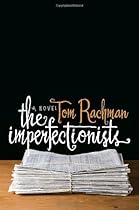 The Imperfectionists
The Imperfectionists by Tom Rachman has gotten a lot of buzz, and the last few books that were getting similar press just didn't do it for me (i.e. Let the Great World Spin, which I didn't finish), so I was a little skeptical, but the story about the old newspaper in Rome sounded intriguing. I'm glad I gave it a shot. It's sort of like Olive Kitteridge in that it is a novel, but is really a bunch of interconnected short stories about people connected with the paper. Rachman excels at drawing the different characters and making you want to know more. I was sad to come to the end of each section because I wanted to know what happens to them next. Sometimes they would show up briefly in another section, but you didn't get the full story. It's more like glimpses into parts of their lives. It's great when a book leaves you wanting to what happens next because you care about the people though, so I recommend this book as long as you're okay with not getting to know everything.
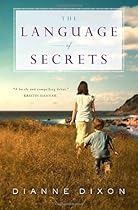
I did not enjoy
The Language of Secrets by Dianne Dixon. Maybe it was because the overview I read made it sound wonderful: a man visits his parent's graves for the first time and finds his own tombstone, saying he died when he was three. Intriguing, yes? Well, it was a good idea for a story, but Dixon is not a strong writer. I should have paid more attention to the blurb by Sue Grafton on the back than the one by Kristin Hannah on the front. I like Hannah, but think Grafton is one of the worst writers I've had the misfortune to encounter. Dixon is much closer to Grafton than Hannah on my scale. The story was interesting enough for me to keep reading, although there's a rather stupid "twist" at the end that's just thrown in to be shocking but by that point you really just want the thing to be over and all of the characters to die a slow painful death anyway. Yep, in addition to the bad writing, I hated all of the characters. Not a pleasant one in the bunch. I especially wanted to strangle the main character's wife. She was completely obsessed with making her horrible father happy, even at the expense of her husband. And when she finally stands up to him, she expects some huge reward for how awesome she is for deciding not to treat her husband like crap. Anyway, clearly I would recommend skipping this one.
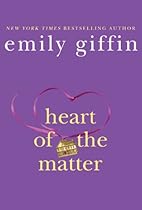
I've loved all of Emily Giffin's books, and
Heart of Matter is no exception. Giffin is a masterful storyteller and character creator. Her characters always have strong faults and don't always do the right thing all the time, but she makes them real and lovable even when you don't approve of what they're doing. And in this book, one of the main characters is the sister to Dex, the main male character in Something Borrowed and Something Blue, and Rachel from those books is also present. I love when authors do that. It was fun getting to see them again.
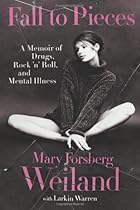
Finally, I read
Fall to Pieces by Mary Forsberg Weiland, Scott Weiland's ex-wife (or soon to be ex, I'm not sure if the divorce if final yet). I have had a major crush on Scott since I was 13. And it's still going quite strong. It was sad to read about their epic drug use, even though I clearly knew about that. It was interesting that they met before he became famous, when he was her driver and she was starting as a model. It made me like her more, that she wasn't some model who just hooked up with him because he was famous. It also made me feel quite sorry for her because being with him couldn't have been easy (although she has her own demons as well). She became close friends with Anthony Kiedis from the Red Hot Chili Peppers and roomed with Charlize Theron, so that was interesting to read about as well. I felt like the book was very well written, and offered what appears to be an honest glimpse into her life. She addresses her mental health issues as well, her struggles with being bi-polar and misdiagnosed for a long time. My mother-in-law is bi-polar, and reading about someone else's struggles with that helped me to understand her better. Overall, I thought this was a great read!
Whew! That was a lot of books to update you all on! I hope you enjoyed the mini-reviews!
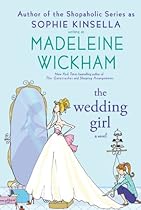 I had no idea until a couple of weeks ago that Sophie Kinsella wrote books under her real name: Madeline Wickham. I noticed on Amazon that books my Wickham were suggestions for people who liked Kinsella and Jennifer Weiner, so I looked into her and realized she and Kinsella were one and the same! I immediately headed to the library and checked out
I had no idea until a couple of weeks ago that Sophie Kinsella wrote books under her real name: Madeline Wickham. I noticed on Amazon that books my Wickham were suggestions for people who liked Kinsella and Jennifer Weiner, so I looked into her and realized she and Kinsella were one and the same! I immediately headed to the library and checked out 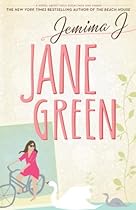
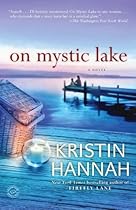
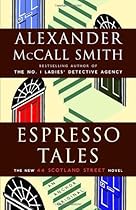
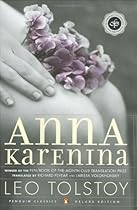
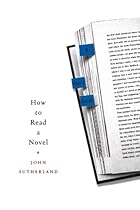

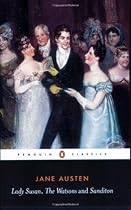
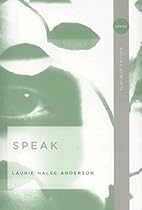
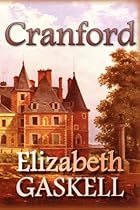
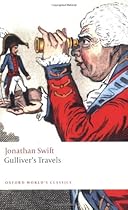
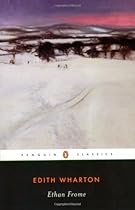 I've owned
I've owned 